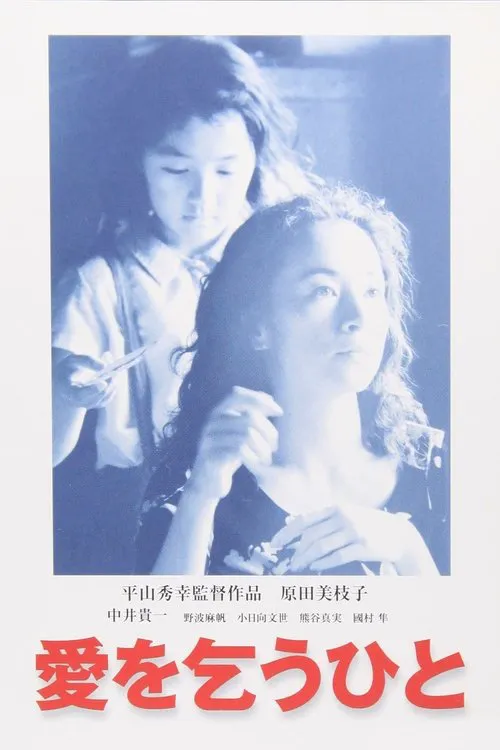Begging for Love

Plot
Begging for Love is a poignant and emotional Taiwanese drama that delves into the dark and painful past of its protagonist. Directed by Chang Tso-chi, the film follows the journey of Hsiao-Hsiao, a young woman played by Chen Shiang-chyi, as she embarks on a quest to find her Taiwanese father's grave. The movie opens with Hsiao-Hsiao visiting the Taipei City Hall, where she enquires about the location of the graves of Taiwanese fathers who died during the 1950s. Her father, played by Chang Chia-hsiang, had passed away when she was a young girl, and she has never been able to locate his grave. The city official's explanation that many graves from that era were moved to a new cemetery sets Hsiao-Hsiao on a journey to find her father's final resting place. As Hsiao-Hsiao travels to the remote countryside to research her father's grave, she is accompanied by her boyfriend, played by Jack Kao. Kao's character is understanding and supportive, but his presence also serves to highlight Hsiao-Hsiao's emotional vulnerability. Despite her boyfriend's efforts to reassure her, Hsiao-Hsiao is struggling to come to terms with the painful memories that her quest has stirred up. As the story unfolds, it becomes clear that the memories that Hsiao-Hsiao has suppressed for so long are not just memories of loss and grief, but also memories of trauma and abuse. Her father, who appears in flashbacks and is also a central figure in the present-day narrative, is shown to be a complex and troubled man who subjected his daughter to physical and emotional abuse. Throughout the film, Chang Tso-chi employs a subtle and understated approach to conveying the emotional and psychological pain that Hsiao-Hsiao has endured. The cinematography is muted and restrained, capturing the bleak and desolate landscape of rural Taiwan, which serves to mirror Hsiao-Hsiao's emotional state. The pacing of the film is deliberately slow and introspective, allowing the audience to fully absorb the complexity and depth of Hsiao-Hsiao's emotions. As Hsiao-Hsiao's journey takes her to the remote countryside, she encounters various characters who offer glimpses into her family's troubled past. There is a gruff but kind-hearted old man who claims to have known her father, a woman who offers Hsiao-Hsiao a listening ear and a sympathetic ear, and a series of other characters who share their own stories of pain and suffering. Through these encounters, the film builds a picture of a community that has been shaped by decades of social and economic upheaval. The Taiwanese society of the 1950s and 60s was marked by poverty, inequality, and social dislocation, conditions that would have made it difficult for families like Hsiao-Hsiao's to access the resources and support they needed to heal and rebuild. As Hsiao-Hsiao gets closer to finding her father's grave, she is forced to confront the traumas and memories that she has suppressed for so long. In a series of powerful and emotionally charged scenes, she grapples with the guilt and shame that she has long carried, as well as the anger and resentment that she feels towards her father. In the end, the film's conclusion is a poignant and emotionally resonant one. Hsiao-Hsiao finally finds her father's grave, but in doing so, she must also come to terms with the painful memories and emotions that she has been running from. The film ends with a sense of resolution and closure, as Hsiao-Hsiao begins the long and difficult process of healing and recovery. Begging for Love is a beautifully observed and deeply moving film that offers a powerful portrayal of the long-term effects of childhood trauma and abuse. Through its nuanced and subtle approach to storytelling, the film offers a glimpse into a world of human suffering and pain, and reminds us of the enduring power of love and resilience in the face of adversity.
Reviews
Recommendations




